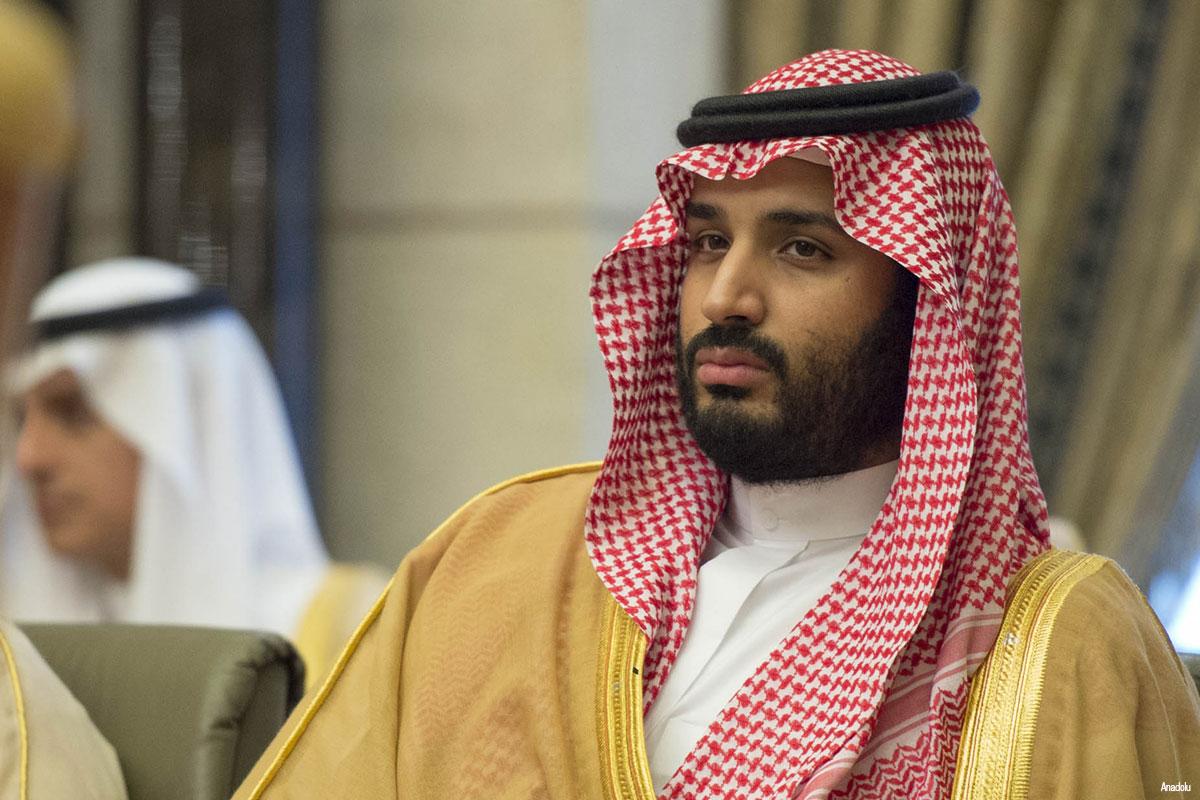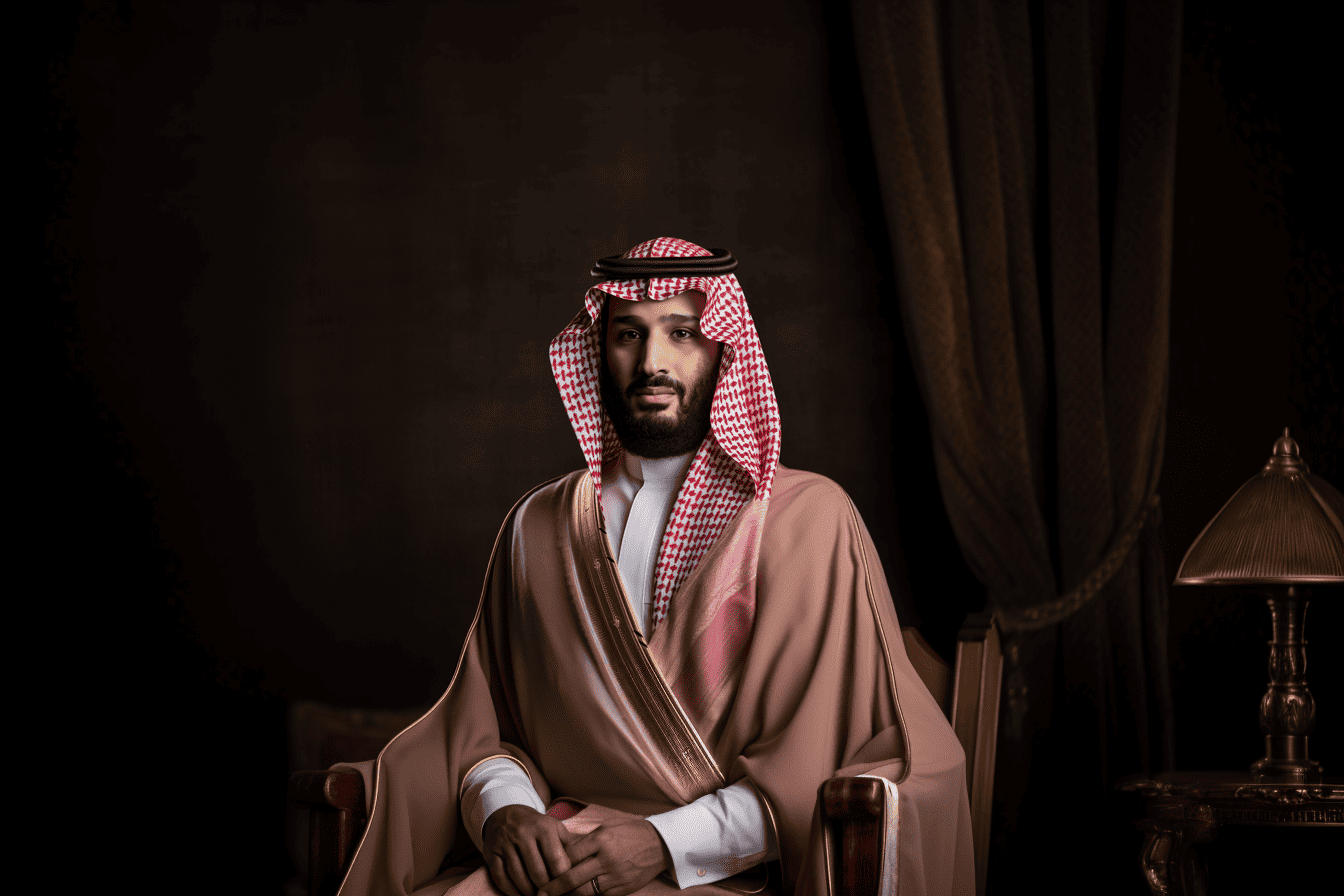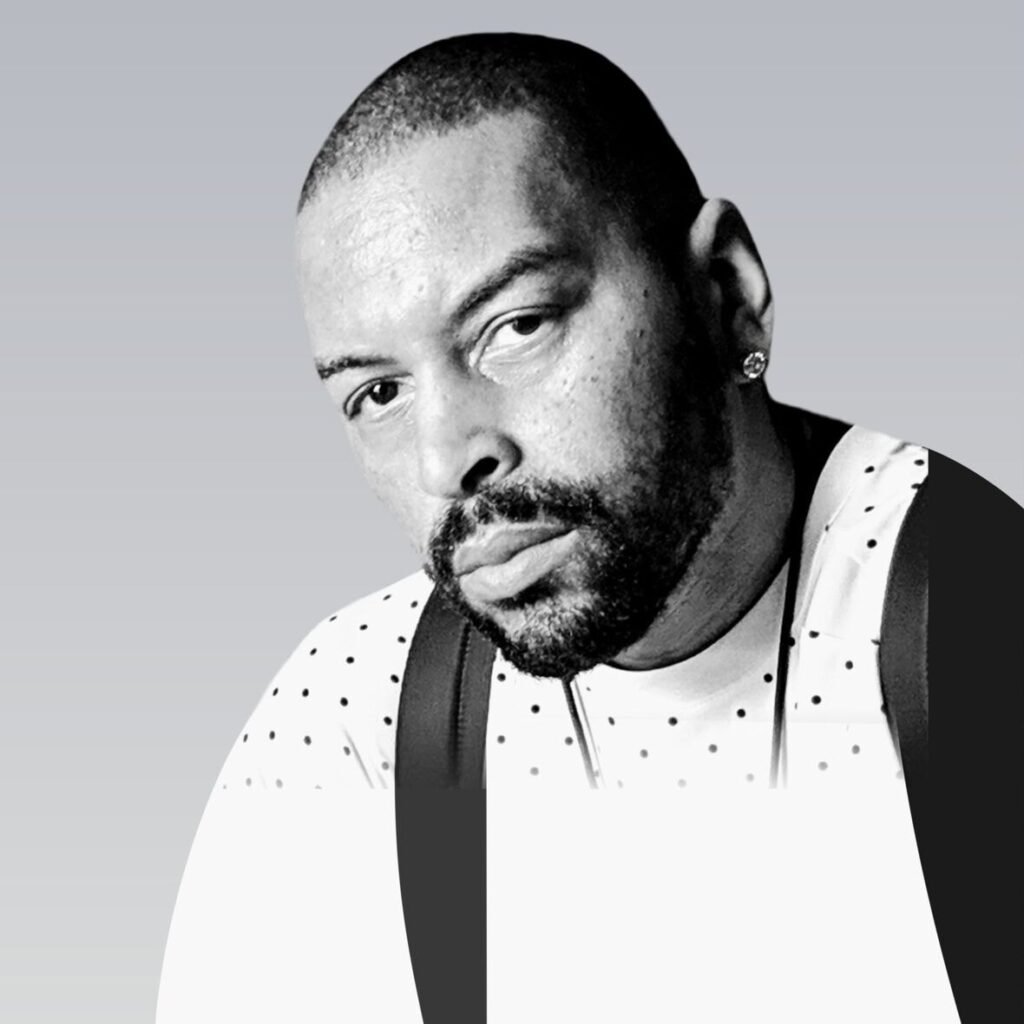Have you ever wondered about the immense wealth connected to a Saudi Arabian prince, and just how much that might actually be? It's a question many people ponder, as stories of incredible riches often swirl around the Saudi royal family. This kind of financial picture, very truly, captures a lot of attention, making folks curious about the sources and the sheer scale of such fortunes.
Trying to pin down an exact figure for a Saudi Arabian prince's personal wealth can be quite a puzzle, you know. It's a topic that brings up many questions, like where does all that money come from, and what does it mean for global affairs? People often search for these details, eager to learn more about the economic influence tied to these prominent figures.
This article aims to shed some light on the subject of a Saudi Arabian prince's net worth. We'll explore some common ideas about how these fortunes are built, talk about why getting a precise number is so hard, and look at the wider impact of such wealth. You might find it interesting to see how these financial stories unfold, a bit like following a complex narrative.
Table of Contents
- Biography of a Prominent Prince
- Understanding the Wealth Picture
- Where the Money Comes From
- Why Estimating is a Challenge
- The Impact of Royal Finances
- Recent Happenings in the Financial Scene
- Frequently Asked Questions
- A Final Thought on Royal Fortunes
Biography of a Prominent Prince
When we talk about a "Saudi Arabian prince," many individuals come to mind. For the purpose of discussing wealth and influence, Prince Mohammed bin Salman Al Saud, often known as MBS, stands out as a particularly relevant figure. He holds significant positions within the Kingdom, and his actions often shape economic and political discussions both inside and outside the country.
Mohammed bin Salman's rise to prominence has been quite swift. He became Crown Prince in 2017, taking on many key responsibilities. His role means he is deeply involved in the country's economic direction, including its ambitious plans for the future, like Vision 2030. This plan aims to diversify the economy away from its traditional reliance on oil, which is a big undertaking.
His public image and the decisions he makes often draw considerable global attention. He's been at the center of various initiatives, from large-scale development projects to social changes within Saudi Arabia. It's fascinating, in a way, how one person's vision can influence such vast resources and so many people's lives.
Personal Details and Bio Data
To give a clearer picture, here are some personal details about Prince Mohammed bin Salman, the Crown Prince of Saudi Arabia. These points offer a snapshot of his background and key roles.
| Detail | Information |
|---|---|
| Full Name | Mohammed bin Salman bin Abdulaziz Al Saud |
| Born | August 31, 1985 |
| Place of Birth | Jeddah, Saudi Arabia |
| Father | King Salman bin Abdulaziz Al Saud |
| Key Role | Crown Prince of Saudi Arabia |
| Other Major Roles | Prime Minister, Chairman of the Council of Economic and Development Affairs, Chairman of the Public Investment Fund |
| Education | King Saud University (Bachelor's degree in Law) |
Understanding the Wealth Picture
When people search for "saudi arabian prince net worth," they are usually looking for a few things. They want to know the sheer scale of the money involved, how it's acquired, and what it means for the world. This interest often comes from curiosity about extreme wealth and the unique economic structure of Saudi Arabia, which is, you know, very much tied to oil.
The dominant search intent for this phrase is informational. People want facts, figures, and explanations. They are not looking to buy something, but rather to satisfy a deep curiosity about how such vast fortunes are accumulated and managed. It's a bit like wanting to know the backstory of a grand adventure.
Who is Interested in This Money Talk?
A wide range of people are quite interested in the financial standing of a Saudi Arabian prince. This group includes individuals curious about global economics, those following Middle Eastern politics, and even folks who just like to read about the lives of very wealthy people. Financial journalists and researchers, too, spend time looking into these matters, trying to piece together the larger economic picture.
Their interests often center on the connection between personal wealth and national resources. They might wonder how the royal family's money influences investment decisions, or how it affects the country's development plans. It's a topic that, honestly, touches upon many different areas of global importance.
What People Are Asking About Wealth
People often ask very specific questions when they look into the wealth of a Saudi Arabian prince. These questions tend to focus on the overall fortune of the royal family, the richest individual members, and the wealth of the current monarch. It's a common pattern of inquiry, very typically seen when discussing powerful and wealthy groups.
These questions show a desire to understand the hierarchy of wealth within the kingdom and how it compares to other powerful families or individuals around the globe. It's about putting the numbers into some kind of perspective, you know, to grasp the true scale of it all.
Where the Money Comes From
The primary source of wealth for the Saudi royal family, and by extension many of its princes, is oil. Saudi Arabia sits on some of the largest proven oil reserves in the world. The state-owned oil company, Saudi Aramco, is a huge part of the national economy. Profits from oil sales contribute significantly to the national budget, and also, in various ways, to the royal family's personal fortunes.
Beyond oil, there are other important streams of income. Members of the royal family often have extensive personal investments. These can include holdings in major international companies, real estate across the globe, and private businesses within Saudi Arabia. So, it's not just oil, but a wide range of financial activities, you know, that contribute to their overall holdings.
Some wealth also comes from direct allowances and stipends from the state. This is a long-standing tradition where members of the royal family receive regular payments. The exact amounts are not publicly disclosed, but they are believed to be substantial, especially for senior princes. It's a system that has been in place for a very long time, actually.
Furthermore, control over vast land holdings and various state-linked enterprises also contributes to the financial strength of the royal family. They have significant influence over many parts of the Saudi economy. This influence, very often, translates into considerable personal financial benefits, making the picture even more intricate.
You know, sometimes figuring out these big numbers feels a bit like trying to master a complex game, like "Heroes of the Shire" with its "unique combat system with no dice rolling ⚔️" – it's all about strategy and knowing the system. Or, perhaps, like the intricate systems found in games with '20 characters, 12 bosses, and over 800 spells,' understanding royal finances can be quite involved, too.
Why Estimating is a Challenge
Estimating the precise net worth of a Saudi Arabian prince, or even the entire royal family, is incredibly difficult. There are several reasons for this lack of transparency. For one thing, the line between state assets and personal wealth can be very blurry in Saudi Arabia. The royal family essentially controls the state's resources, including its oil wealth. This makes it hard to say where one ends and the other begins, in some respects.
Many of the family's assets are held privately, without public disclosure. They might own companies, properties, or investments through various holding structures that are not openly reported. This privacy makes it nearly impossible for outside observers to get an accurate count of their true financial standing. It's a very private affair, usually.
Also, the sheer number of royal family members makes a comprehensive estimate nearly impossible. The House of Saud includes thousands of princes and princesses, all of whom might have their own personal fortunes. While some are immensely wealthy, others might have more modest holdings, relatively speaking. Trying to account for everyone is a truly enormous task, you know.
Financial reporting standards in Saudi Arabia are different from those in many Western countries. There isn't the same level of public scrutiny or requirement for detailed financial disclosures. This means that much of the information remains internal to the family and the government. It's a very different approach to financial openness, apparently.
News reports and estimates from financial publications often rely on educated guesses, public records where available, and insights from people familiar with the family's finances. These estimates can vary wildly, depending on what assets are included and how they are valued. So, you see, getting a solid number is always a bit of a moving target.
The Impact of Royal Finances
The wealth held by Saudi Arabian princes has a significant impact, both domestically and internationally. Within Saudi Arabia, this wealth helps fund large-scale development projects, infrastructure improvements, and social programs. The Public Investment Fund (PIF), chaired by Crown Prince Mohammed bin Salman, plays a big role in directing national investments, often drawing from the kingdom's vast reserves. This fund, in fact, is very active globally.
Internationally, the royal family's investments influence markets and industries around the world. They hold stakes in major companies, sports teams, and luxury properties. These investments can shape global trends and provide significant capital for various ventures. It's a very widespread financial presence, actually.
The financial decisions of the royal family also have political implications. Their investments can strengthen diplomatic ties or signal shifts in economic strategy. For example, large investments in certain countries can create mutual economic interests, affecting foreign policy. This kind of financial diplomacy is, you know, quite a powerful tool.
The perceived wealth also contributes to the kingdom's image and soft power on the global stage. It allows for significant philanthropic efforts, cultural initiatives, and sponsorships that can enhance Saudi Arabia's international standing. It's a way of projecting influence that goes beyond traditional diplomacy, in a way.
However, the concentration of wealth also brings scrutiny regarding governance and human rights. Critics often point to the lack of transparency and accountability in how these vast fortunes are managed. This aspect is, very often, part of the wider discussion about Saudi Arabia's place in the world. You can learn more about economic influence on our site.
Recent Happenings in the Financial Scene
In recent years, there have been some notable developments regarding the wealth and financial strategies of the Saudi royal family. The push towards economic diversification, spearheaded by Vision 2030, is a major trend. This means a focus on investing in new industries like tourism, technology, and entertainment, rather than relying so heavily on oil. It's a very ambitious plan, naturally.
The Public Investment Fund (PIF) has become a key player in these efforts, making significant investments both at home and abroad. They've poured money into everything from electric vehicle companies to gaming ventures and even new futuristic cities within Saudi Arabia. This represents a substantial shift in how the kingdom's wealth is being deployed, you know, for future growth.
There have also been anti-corruption campaigns within Saudi Arabia, which have, at times, involved detentions of prominent princes and businessmen. While framed as efforts to combat corruption, these actions have also been seen by some as a way to consolidate power and, perhaps, centralize control over certain assets. It's a complex situation, obviously.
The global energy market also impacts the royal family's wealth. Fluctuations in oil prices directly affect the kingdom's revenues and, indirectly, the personal fortunes tied to state resources. So, the economic climate outside of Saudi Arabia can, very directly, influence their financial standing. This connection is, you know, very real.
Overall, the trend is towards a more active and visible role for Saudi wealth in the global economy, driven by strategic long-term goals. The focus is on building a sustainable economic future that is less dependent on a single commodity. It's a very forward-looking approach, apparently.
Frequently Asked Questions
How rich is the Saudi royal family?
Estimates for the Saudi royal family's collective wealth vary greatly, often ranging into the hundreds of billions, or even trillions, of dollars. This figure includes a mix of personal assets, investments, and assets closely linked to the state. It's a vast sum, very truly, making them one of the wealthiest royal families in the world.
Who is the richest person in Saudi Arabia?
While Crown Prince Mohammed bin Salman is often seen as the most powerful and influential, determining the "richest" individual within the royal family is challenging. Prince Alwaleed bin Talal Al Saud is a well-known billionaire investor with publicly reported holdings, but the overall wealth of other senior royals, particularly King Salman and the Crown Prince, is less transparent and could be much higher. It's a question that, you know, doesn't have a simple answer.
How much is the King of Saudi Arabia worth?
The King of Saudi Arabia, King Salman bin Abdulaziz Al Saud, holds immense wealth, but a precise net worth figure is not publicly available. His fortune is intertwined with the state's resources and the vast assets controlled by the royal family. He receives significant allowances and controls substantial investments, which, very often, are not separated from the state's financial picture. This makes a clear individual valuation quite difficult.
A Final Thought on Royal Fortunes
Understanding the net worth of a Saudi Arabian prince is a complex task, full of hidden details and intertwined with national economics. It's a topic that continues to draw significant interest, reflecting the curiosity many people have about extreme wealth and its influence on the world. This financial picture, you know, is always evolving, shaped by global events and strategic decisions within the kingdom. You can also link to this page for more information.



Detail Author:
- Name : Prof. Martin Zboncak
- Username : rhill
- Email : sylvan12@gmail.com
- Birthdate : 1987-04-07
- Address : 4036 Ledner Ports North Gaylordport, NY 88379
- Phone : (915) 641-2078
- Company : Botsford, Gislason and Rempel
- Job : Education Teacher
- Bio : Optio velit cum suscipit aut praesentium. Aut libero aut reiciendis eum provident cupiditate architecto. Perspiciatis optio optio est ipsa est laboriosam possimus. Ipsam et ipsum qui deserunt.
Socials
instagram:
- url : https://instagram.com/laron_grady
- username : laron_grady
- bio : Earum ut magnam enim quos ut ea. Tempora voluptatem et rerum in.
- followers : 1246
- following : 1482
tiktok:
- url : https://tiktok.com/@laron_real
- username : laron_real
- bio : Et vitae voluptatem sapiente occaecati. Possimus ut ex ut consequatur ea sunt.
- followers : 1813
- following : 1852